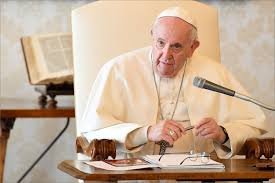The death of the Catholic pontiff, a man who bore both the spiritual weight of the Church and the heavy toll of personal ill-health, has again thrust into the limelight a seldom-challenged doctrine: the permanency of the papal office. As the global Catholic community mourns and the College of Cardinals prepares for yet another conclave, a deeper reflection is necessary. Must the papacy remain a lifetime appointment, irrespective of health, capacity, or evolving circumstances? Must a man serve till death, even when life itself no longer permits effective service? These are not merely questions of Canon law but of theological, pastoral, and human significance.
The doctrine of papal permanency, while deeply rooted in tradition, is not a matter of divine mandate. It evolved from historical ecclesial patterns that sought to mirror Christ’s sacrificial model of leadership. But in truth, this tradition-like many others-was shaped as much by medieval political dynamics as by theological convictions. In an age when monarchies ruled until death, the Pope, as the Bishop of Rome and sovereign of the Papal States, was not exempt from such expectations. Over time, what began as customary solidified into sacrosanct.
Yet, it is precisely here that the Church, which preaches the dignity of the human person, must wrestle with a central contradiction. How does it reconcile the Gospel’s call to compassion, understanding, and shared humanity with a model of leadership that seems to deny room for human limitation? To ignore the cost of unwavering tenure is to risk turning sanctity into suffering and stewardship into symbolic endurance.
The recent papacy exemplifies this tension. The late Holy Father, despite years of debilitating illness, carried on his ministry in full public view. He became, for many, a moving testament of perseverance and sacrifice. But for others-especially within a Church that still wrestles with accountability, transparency, and agility-his prolonged physical and cognitive decline posed uncomfortable questions. Who governs when the pontiff is too ill to speak or act? What mechanisms ensure coherence in global Catholic leadership during such moments of incapacitation?
Pope Benedict XVI, whose historic resignation in 2013 broke a 600-year precedent, brought moral clarity to this debate. By stepping down, he affirmed that spiritual humility sometimes demands relinquishing power for the good of the Church. His decision, far from being an act of weakness, became a moment of prophetic courage. It introduced a precedent that many still resist embracing as normal.
And herein lies the Church’s institutional dissonance. Even as the world commended Benedict’s bravery, many within ecclesiastical circles treated his act as anomalous-an emergency exception, not a permissible choice. Liturgical phrasing, canonical silence, and clerical culture all conspired to preserve the aura of permanence.
But permanence must not become petrification. The Church has always been at its best when it recognizes the movement of the Spirit through time and responds accordingly. From Vatican II’s aggiornamento to synodal listening in the Amazon, Catholicism has grown by engaging, not avoiding, the world’s new realities. And one pressing reality today is that leadership must adapt to the fragile and finite nature of the human condition.
We live in an era of unprecedented life expectancy, where modern medicine can prolong life without necessarily preserving vitality. To equate longevity with efficacy is not only unrealistic-it is spiritually unfair. A Pope, like any servant of the people, deserves the dignity of rest when strength wanes. Moreover, the Church, a global community in constant motion, requires an active shepherd, not a symbolic figure immobilized by age or ailment.
Some may argue that the Pope’s role is more spiritual than administrative-that suffering itself can be redemptive and that a visible papal cross inspires the faithful. There is truth in this. But such a view must be balanced with prudence. The prophetic dimension of suffering must not eclipse the pastoral imperative of effectiveness. The See of Peter must not become a prison of piety.
It is time, then, for the Church to canonically normalize papal resignation-not as an emergency clause but as an accepted, even honored, expression of servant leadership. It must be made clear in doctrine and ritual that stepping down, when discerned in humility and for the common good, is as faithful an act as enduring till the end. This would not diminish the sacredness of the papacy but humanize it in ways our times desperately need.
Furthermore, the Church should revisit the “apex” nature of the papal office. Vatican I’s emphasis on papal infallibility and centralization, while historically contextual, has led to a view of the Pope as near-omnipotent. In a synodal Church, we must reimagine leadership as collaborative, where the Petrine role remains vital but not solitary or untouchable. Collegiality among bishops, shared discernment, and a stronger laity voice can enrich the magisterium without diluting its authority.
In preparing for the next conclave, the Church has a kairos moment before it-a Spirit-led opportunity to embrace reform not just in personnel but in principle. The Cardinals would do well to elect not only a leader for today but one willing to shape a papacy for tomorrow: humble, adaptive, and unafraid of relinquishing power when the time is right.
The weight of the keys Christ gave to Peter is not a chain to bind, but a call to unlock. Unlock courage. Unlock renewal. Unlock the humility to change. If the Church truly believes in the Spirit’s guidance, it must trust that reform is not betrayal, but fidelity. Fidelity to Christ, fidelity to the people of God, and fidelity to the truth that no office-however holy-is immune to the grace of renewal.
Let the death of a Pope not only bring mourning but meaning. Let it stir a conversion of structure as much as heart. And let the next chapter of Catholic leadership be written not in fear of change, but in faith that change can be sacred.
Dr Ugwu can be reached on : Obiajulu@live.com, +2348033103656
![]()



